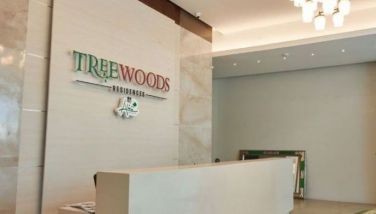‘Sustainable Development’ – the Mandate for the Future
It is good to see that quite a number of organizations have made fundamental shifts to redesign their operations behind sustainable principles. These are sustainability leaders. Designing operations and products with sustainability principles in mind must become the norm in every organization.
Increasingly, society expects more from business than financial sustainability; it expects that companies undertake work to ensure the social and environmental sustainability of their operations and products.
However, capitalism is better than critics try to make it. Capitalism has the ability to change, keeping long-term profits in mind, but declaring money (making money) and purpose (keeping purpose high on the agenda) as twins.
Additionally, investors are forcing companies to think in sustainability. If company managements do not follow, investors will boycott the shares of those organizations.
Given the quarterly focus on record earnings being expected by investors, the question whether this is sufficient ‘reason-to-be’ is only fair. Companies additionally have to realize that the generation of the Millennials is exactly raising the issue of ‘purpose’ of a company.
Because of the fact that the issue of ‘maximizing profits’ versus ‘fair profit and focus on purpose’ is raised regularly now, more and more companies are taking ‘sustainable development’ more seriously. One large multinational company is talking about ‘inclusive capitalism’.
In this context, I like to encourage everybody to also think about a range of issues, such as:
Do products help customers be sustainable?
As customers’ behaviors change, their demand for sustainable products and services increases. This ‘virtuous cycle’ moves the society in a more sustainable direction and builds market opportunities at the same time. Demand for electric vehicles, for example, is on an exponential growth curve.
How is trust established and maintained with stakeholder?
Intangibles such as brand image and goodwill are often the most important valuable assets for most organizations. The value of customer loyalty and advocacy never have been more important than in this age of digital transformation - a highly connected world enabled by social media. Trust is built on competence and character. Character is demonstrated through openness, honesty, consistency and follow-through. Figure out what might be important to customers in their decision-making process and make it easy for them to access credible, timely and accurate information.
Research data suggest that some companies are creating real strategic advantages by adopting sustainability measures that their competitors can’t easily match.
While I try to get the message across that ‘sustainable development’ should be the battle cry of the future, we need to see the future as bringing yet-unforeseen opportunities rather than unanticipated threats. We need to understand that consumers no longer just buy products but buy experiences. Supply chains of the future will have to address the real-time needs of customers, as captured, and interpreted by the data analytics capabilities.
I have a big question: if we could protect human rights, grant everybody the right to vote, establish free markets and let individuals, ideas and goods move throughout the world as easily as possible, there will be peace and prosperity for all? My heart says YES; my mind – unfortunately – has a different opinion.
The consequence: we have to understand that our businesses, communities and our planet deserve a sustainable future, and our hearts and brains have to create an environment that supports equity, sustainability, and expands economic opportunities that will lead to prosperity and peace.
I would appreciate your feedback and your answer to my above question; contact me at [email protected]
- Latest

























